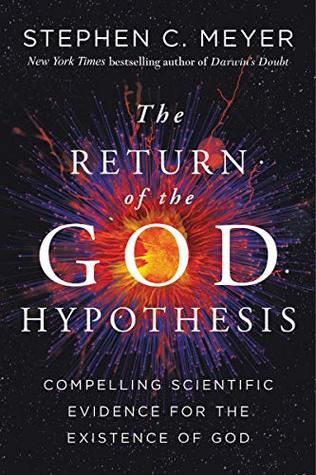More on this book
Community
Kindle Notes & Highlights
Read between
January 18 - December 26, 2023
since the fine tuning of the universe was established at the beginning of the universe, explaining it also seems to require a preexistent intelligence. Yet in pantheism nothing preexists the natural world, since the natural world (prakriti) and the god of pantheism (brahman) possess self-existence coextensively. Nature and god didn’t come into existence. They simply are. Moreover, god is in nature and the whole of nature is god. Thus, pantheism, like naturalism, lacks reference to any preexistent or transcendent entity, still less an intelligent or conscious one, that could account for the
...more
Effects result from causes distinct from themselves.25 Since the effects in question include the beginning of the universe as a whole and the fine tuning of the whole universe from the beginning, the nature of the effects requires a cause beyond the universe—a transcendent cause.
Naturalism, materialism, and pantheism, on the other hand, deny the reality of any intelligent agent existing before or independently of the universe. Consequently, these systems do not provide causally adequate explanations of either the fine tuning or the origin of the universe.
Neo-Darwinian biologists, computer software engineers, and leading biotechnologists all acknowledge that the information in DNA and RNA resembles digital computer code.9 That raises the question of how that information—information necessary to produce the first life—arose.
the best way to weigh an argument was to see how well it withstood critical scrutiny and how well its proponents could respond to the strongest objections to their case.
Functional RNA catalysts arise only once RNA bases are specifically arranged into information-rich sequences—that is, function arises after, not before, the information problem has been solved. For this reason, invoking prebiotic natural selection in an RNA world does not solve the problem of the origin of genetic information; it merely presupposes a solution in the form of a hypothetical, information-rich RNA molecule capable of copying itself.
in challenging the case for intelligent design, Stephen Fletcher appealed to the authority of Wikipedia, while Wikipedia appealed to the authority of Stephen Fletcher. Meanwhile, since 2010, to demonstrate the plausibility of the RNA world and the general claim that life could have arisen from simple chemicals without intelligent guidance, proponents of chemical evolution have repeatedly cited the same studies that Fletcher did.
To ensure a biologically relevant outcome, they had to intervene—repeatedly and intelligently—in their experiment: first, by selecting only the “right-handed” versions of sugar that life requires (sugars, like amino acids, come in two mirror-image chemical structures called isomers); second, by purifying their reaction products at each step to prevent interfering cross-reactions; and third, by following a precise procedure in which they carefully selected chemically purified reagents and then choreographed the order in which those reagents were introduced into the reaction series. As my
...more
Professor James Tour (Fig. 15.4), of Rice University, one of the leading synthetic organic chemists in the world, has written two seminal review articles since 2016 assessing the status of chemical evolutionary theory.18 He has concluded that all current chemical evolutionary scenarios lack plausibility precisely because they depend upon intelligently purified chemical reagents, intelligently designed chemical recipes, and intelligently guided experimental protocols.
whenever chemists set up or interfere in a reaction sequence—or whenever they otherwise apply constraints to a chemical system—to ensure one outcome and preclude others, they effectively input information into that system. In so doing, they inadvertently simulate, if anything, the need for intelligent design to generate biologically relevant chemistry and information.


